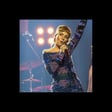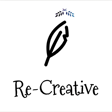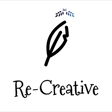
Christopher Guerin on Ravi Shankar
Joe and Mark are joined by Christopher Guerin, poet and music aficionado, who is on the podcast to champion the work of classical Indian musician Ravi Shankar.
Christopher spent twenty-six years in the symphony orchestra business, including twenty as President of the Fort Wayne Philharmonic. After that he went on to work for Sweetwater ("the world's leading music technology and instrument retailer") as a VP.
Since retiring, he's been putting his English degrees to work as a writer. He started out writing short stories and has become a poet, focused on ekphrastic sonnets. (In his case, poems that describe, or are influenced by, specific images.)
The trio take a deep dive into the history and current state of poetry before discussing the music of Ravi Shankar.
Shankar's sitar music was in the background as Christopher wrote his sonnet sequence, My Human Disguise.
"Ravi Shankar's music is so overwhelmingly complex and free that when I have it in the background I can concentrate on the poems and rhymes in a way that I can't with any other music," Christopher explains.
He's also a huge fan of Shankar's daughter, Anoushka, in particular a piece called Jannah. [clip below]
"You can hear the same piece over and over again and you'll think it's brand new because of the complexity of the music," he says.
Christopher makes a great case for authors to listen to raga while they write.
For more information, check out the show notes for this episode.
Re-Creative is produced by Donovan Street Press Inc. in association with MonkeyJoy Press.
Contact us at joemahoney@donovanstreetpress.com





